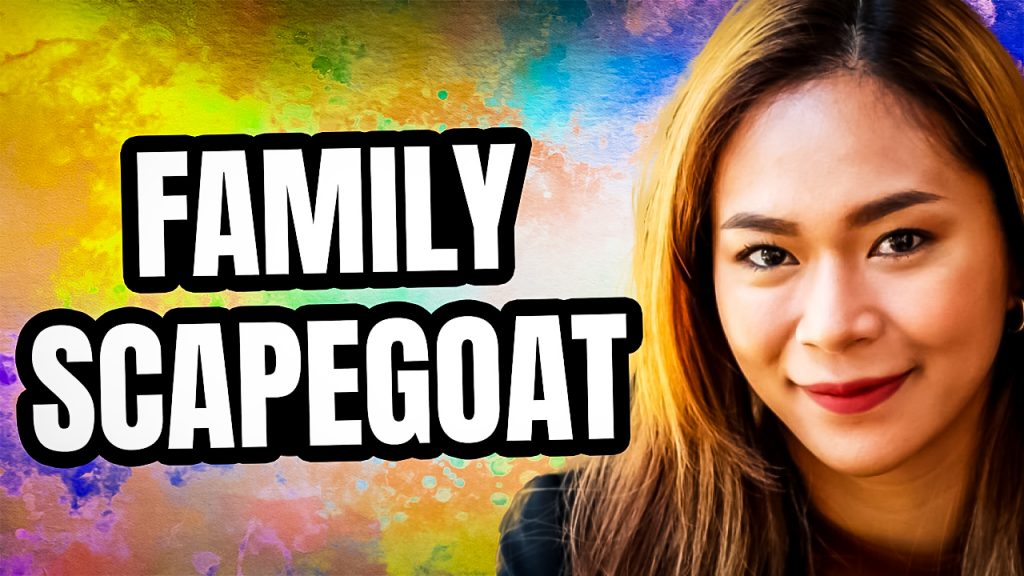What is the Family Scapegoat?

The family scapegoat is a term used to describe a person within a family system who is
targeted, blamed, and criticized for problems that exist within the family dynamic. This individual
is often seen as the black sheep of the family and may be unfairly blamed for issues that they
did not cause. The family scapegoat is typically the one who receives the most negative
attention and is often excluded or rejected by other family members. In this essay, we will
explore the dynamics of the family scapegoat, including how they are identified and the impact
this role can have on a person’s life.
In most cases, the family scapegoat is identified early on in their life. They are often the child
who is deemed as “difficult” or “challenging” by their parents and other family members. They
may have struggled with behavioral issues, academic problems, or mental health concerns.
Instead of receiving support and understanding, they are often met with criticism and blame
from their parents and other family members. This can lead to feelings of isolation and a lack of
self-esteem.
The family scapegoat is often the one who speaks out about issues within the family dynamic.
They may point out patterns of dysfunction or try to change the family system in some way. This
can be threatening to other family members who are invested in maintaining the status quo. The
family scapegoat is then blamed for disrupting the family, even though they are simply trying to
address underlying problems.
One of the most damaging aspects of the family scapegoat role is the constant criticism and
negative attention that is directed towards this individual. They may be blamed for everything
that goes wrong in the family, even if they had nothing to do with it. This can lead to feelings of
guilt, shame, and inadequacy. The family scapegoat may feel as though they can never do
anything right and that they are always the cause of problems.
The family scapegoat is often excluded or rejected by other family members. They may be the
one who is left out of family events or not invited to gatherings. This can be incredibly isolating
and can lead to feelings of loneliness and despair. The family scapegoat may also be the target
of bullying or abuse from other family members.
It is important to note that the family scapegoat is not responsible for the dysfunction within the
family system. They are simply a symptom of underlying problems that exist within the family
dynamic. However, they are often the ones who are blamed for these issues, which can be
incredibly unfair and damaging.
The impact of the family scapegoat role can be profound and long-lasting. Individuals who have
been scapegoated may struggle with low self-esteem, depression, anxiety, and other mental
health issues. They may also struggle with relationships outside of the family, as they may have
learned to expect criticism and rejection from others. The family scapegoat may also struggle with addiction or other self-destructive behaviors as a way to cope with the pain and trauma of
their role within the family.
It is important to note that not all families have a scapegoat. Some families are able to address
and resolve problems in a healthy way. However, for families that do have a scapegoat, it is
important to recognize the impact this role can have and to work towards creating a healthier
family dynamic.
One way to address the family scapegoat role is to seek therapy. Therapy can provide a safe
space for the individual to explore their experiences within the family and to develop coping
strategies for dealing with the impact of the role. Family therapy can also be helpful in
addressing underlying issues within the family dynamic and working towards a healthier family
system.
Another way to address the family scapegoat role is to set boundaries with family members.
This may mean limiting contact with individuals who are toxic or abusive. It may also mean
asserting oneself and expressing boundaries within family interactions, such as stating that
certain behaviors or language is not acceptable. While this can be challenging, setting
boundaries is an important step in protecting oneself from further harm.
Additionally, it is important to recognize that healing from the impact of the family scapegoat role
is a process. It may take time to develop a sense of self-worth and to overcome the trauma of
being blamed and rejected by one’s own family. However, with support and a commitment to
self-care, individuals who have been scapegoated can learn to heal and move forward in their
lives.
In conclusion, the family scapegoat is a person within a family system who is unfairly blamed
and criticized for problems that exist within the family dynamic. This role can have a profound
and lasting impact on the individual’s life, including low self-esteem, depression, anxiety, and
addiction. It is important to recognize the impact of the family scapegoat role and to work
towards creating a healthier family dynamic, whether through therapy, setting boundaries, or
other means. Ultimately, healing from the family scapegoat role is possible, and individuals who
have experienced this trauma can find a path towards healing and recovery.
This Post is Brought To You By BetterHelp